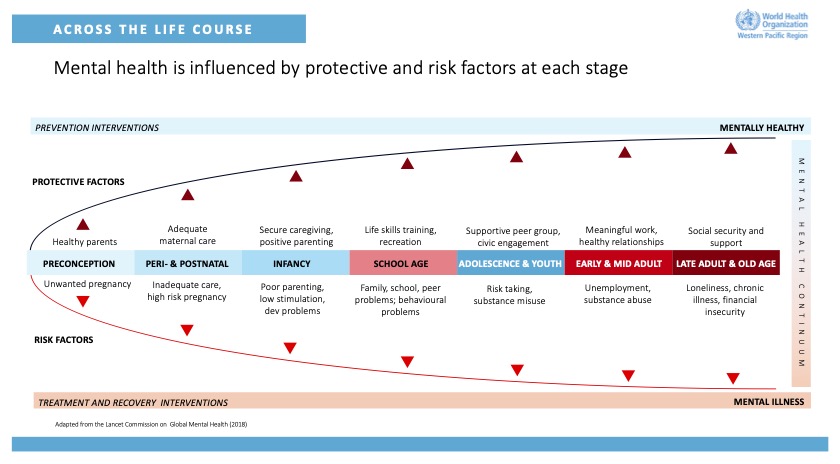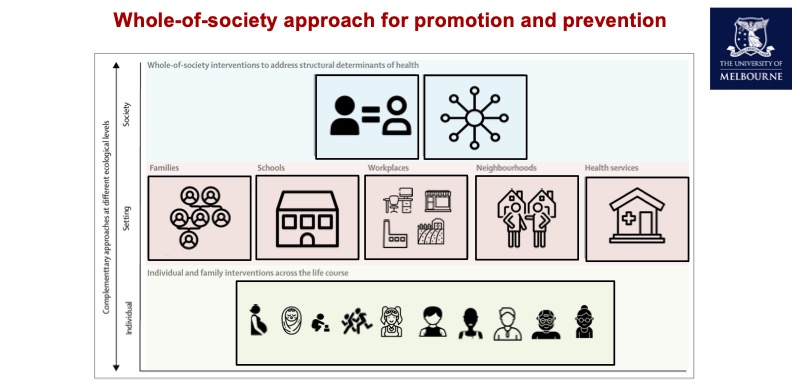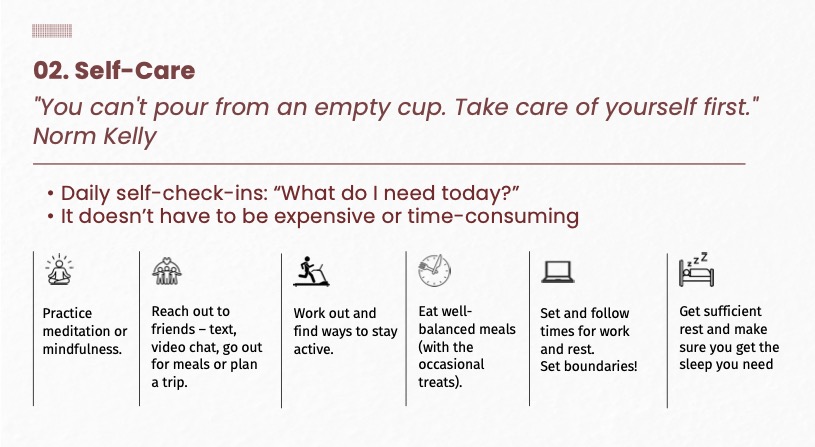Webinar Recap: Women & Mental Health: Navigating Challenges, Overcoming Stigma
Mental health is increasingly recognised as an essential part of overall well-being. In the 11th Tow Tiang Seng Distinguished Lecture Series, Women & Mental Health: Navigating Challenges, Overcoming Stigma, speakers explored how stigma, social roles and systemic inequality affect women’s mental health, help-seeking behaviours and long-term outcomes.
Understanding the Foundations of Well-being
Emeritus Professor Helen Herrman AO, Professor Emeritus of Psychiatry at the Centre for Youth Mental Health, University of Melbourne, opened the session with an overview of mental health across a woman’s life. She emphasised that health is not merely the absence of illness but a state of complete physical, mental and social well-being. Social connection plays a central role in maintaining good mental health, and disruptions to these connections can contribute to the onset of mental health issues.
Professor Herrman highlighted a range of protective and risk factors that influence mental health at different life stages. Positive parenting, supportive peer groups, meaningful work and access to education all support resilience, particularly for women, who often face unique societal pressures.

Gender differences in mental health were also discussed. Globally, women are more likely to experience depression and anxiety, while men are more prone to substance use and conduct disorders. Hormonal, genetic and psychosocial influences—such as exposure to gender-based violence or restrictive social roles—help explain these patterns. In Singapore, data from national surveys showed that women consistently report higher rates of depression and poor mental health compared to men.
The Lasting Impact of Early Adversity
An important part of the discussion centred on the long-term impact of childhood trauma. Professor Herrman pointed to findings from the landmark Adverse Childhood Events (ACEs) study initiated by Felitti in 1998, which revealed that individuals exposed to multiple traumatic experiences in childhood—such as emotional abuse or neglect—have a significantly higher lifetime risk of depression. For instance, around 60% of those who experienced significant emotional abuse in childhood went on to develop major depression in adulthood (Shonkoff, 2009). These findings underscore the importance of early intervention and the need for trauma-informed mental health services.
Gender-Sensitive and Trauma-Informed Care
Professor Herrman also stressed the importance of gender-sensitive approaches in both physical and mental healthcare. Many women, especially those with mental illness, have experienced social inequality and trauma in their relationships, yet this is often overlooked in clinical settings. She called for increased awareness, education for healthcare staff, respect for women’s privacy and safety, and stronger partnerships with patients and families.
Collaborative care models and a whole-of-society approach—engaging healthcare, education, social services and policy—are key to improving mental health outcomes for women and preventing illness before it starts.

Local Insights: The CHI Study
Dr Rathi Mahendran, Consultant Psychiatrist, shared findings from the Community Health and Intergenerational (CHI) Study.
Women in the study generally reported feeling less connected to others, less satisfied with life and lower overall quality of life compared to men. However, they also showed higher levels of gratitude and were more likely to take part in creative activities like music and art. They exercised less than men and were more likely to experience depression, especially if they had long-term health problems like heart disease, diabetes, stroke or thyroid issues.
Interestingly, for women with mild cognitive impairment (MCI), many improved or stayed stable over a three-year period. This was likely thanks to the regular health checks, brain and social activities, and supportive programmes offered during the study. None of the women in this group went on to develop dementia, which suggests that early help and ongoing support can really make a difference.
When it came to mood and emotions, the study found that women continued to show more signs of depression than men after three years, although the difference wasn’t strong enough to be considered statistically significant. On the other hand, anxiety levels told a clearer story — women had higher anxiety scores while men’s anxiety actually decreased. These findings highlight the need for continued emotional support that takes women’s unique experiences into account as they age.
Building Everyday Resilience
Women are often more susceptible to poorer mental health due to the multiple demands placed on them, including their caregiver roles, the challenge of balancing family and career, and the stigma surrounding mental health.
Dr Pearlene Ng, Principal Clinical Psychologist, concluded the session with a practical and uplifting framework for women to build resilience in their daily lives. She introduced the “SHE” model:
- Self-Care: Small daily actions like check-ins or moments of rest can help restore energy and perspective.
- Healthy Boundaries: Learning to say no, prioritising time, and letting go of guilt are essential to maintaining mental balance.
- Empowerment: Recognising one’s strengths, asking for help when needed, and using emotion regulation strategies can support long-term well-being.

Summary
Women’s mental health is shaped by a range of life experiences—from childhood through adulthood—including trauma, social inequality and health challenges. Addressing these issues requires not only individual strategies like self-care and empowerment, but also systemic changes in how care is delivered. Gender-sensitive, trauma-informed and community-based approaches can help women feel supported and seen at every stage of life.
